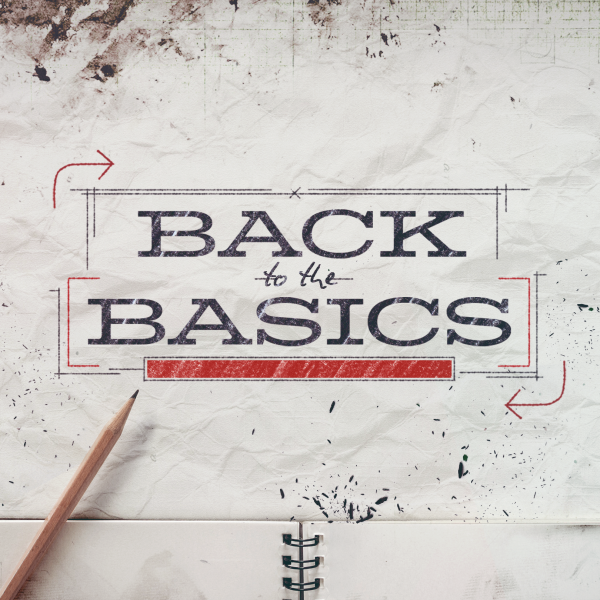Ask, Seek, Knock
- What role does prayer play in your life right now? Are you more comforted or challenged by the privilege of prayer? Why?
Read: Matthew 7:7-11
- How is it significant that Jesus invites you to speak with God in prayer (v.7-8)? What, if any, reluctance do you have in turning to God in prayer?
- What is the significance of Jesus saying that God promises to respond when we pray (v.7-8, 11b)?
- What may the progression of “ask…seek…knock” be indicating about how we ought to pray?
- Who is the “everyone” God promises to answer in v.8? What do you make of those who argue that God plays “favourites”?
- Why do you think Jesus emphasizes that when we pray, we are coming to our Heavenly Father? How does this encourage or discourage you to pray? What does that say about your “father picture” and how is that being played out in your prayer life today?
- In what ways does God out-stripe an earthly father? Why does Jesus mention that here? One reality that Jesus challenges us in these verses is whether or not we really believe that God is good. Have you ever struggled with whether or not God is a giver of good in life? If so, when, and why?
- How does God giving only “good gifts” or “good things” to His children determine how we pray and what we can expect from prayer?
- Briefly discuss the four ways God hears and answers every prayer that were mentioned on Sunday. Which one was new to you or opened a new avenue of insight to you? Do you struggle to believe that God always responds to His children? If so, why?
- What can you do this week to lean into the privilege of prayer more intensely?
- What has God’s Spirit been saying to you through this study? What are you going to do about it?
My Secret Life
- How do you pray? What do you do? What do you say?
Read Matthew 6:5-8
- What was wrong with the way hypocrites prayed?
- What does praying “to your Father in secret” look like?
- How does the fact that our Father knows what we need before we ask Him, affect our prayer?
Read Matthew 6:9-13
- What role does the Lord’s Prayer play in your prayer life? Are you praying it? If so, how? If not, why not?
Read Matthew 6:14-15
- What does our readiness to forgive others have to do with our prayers?
Read Matthew 6:16-18
- What is your experience with fasting?
- What is the purpose of fasting?
- What does it mean for our acts of worship and ministry that our Father “is in secret” (v.18)?
- What do I sense God telling me and what am I going to do about it?
Praying Persistently
Read Luke 11:5-8
1. What does this parable teach about God?
2. What does Jesus want me to know about prayer as He shares this parable?
3. How does this parable apply to my life? What would cause me to make God “get out of bed and help me”?
Read Luke 18:1-8
4. If you compare this parable with the one in Luke 11 above, what are the similarities and what are the differences?
5. Why does Jesus tell this story? What is His purpose? What does He want to tell us?
6. What light does v.7-8 shed on circumstances that call for persistent prayer?
7. Summarize what insights you have gained for your own prayer life as you contemplate these texts!
Praying Confidently
Share your experiences with prayer:
1. Are all your prayers answered?
2. Do you pray regularly?
3. How do you pray?
4. What hinders you from praying?
Read Matthew 7:7-12
5. What is prayer according to v.7-8?
6. These verses do not only apply to our prayers. They also describe how we are to relate to other people (consider the context in v.1-6). Explain.
7. What does v.9-11 teach you about prayer?
8. What assumptions about God may hinder you from praying?
9. When you pray, what image of God do you have in mind, consciously or subconsciously?
10. How does v.12 fit into Jesus’ teaching on prayer?
11. How will you apply what you have learned into your own prayer life?
When Crisis Comes
1. Share a time in your life when you faced a crisis or a major challenge. What did you do? What was the outcome?
Read 2 Chronicles 20:1-31
2. What was the threat Israel had to face and what was Jehoshaphat’s initial reaction? Can you relate?
3. Admitting that he didn’t know what to do, what steps did Jehoshaphat take facing the looming crisis? Is there any wisdom you could gain from that?
4. Observe how Jehoshaphat prays. Instead of rushing into God’s presence with Israel’s problem what did he do? Why did he start his prayer that way?
5. What can you learn from Jehoshaphat when you turn to God in prayer facing a crisis?
6. How did God answer Jehoshaphat’s prayer? What does it tell you about how God may answer your prayers?
7. Although God promised that the battle is His, the people of Israel still had to obey and do their part. They sing and pray Psalm 136 (v.21). What may God want you to do as you face your crisis?
8. When has God given you reason to rejoice over your enemies?
9. What do you hear God telling you through this story? What do you need to do?
When You Need Direction
1. Who taught you how to pray? Describe how that happened. When did prayer first become your own conversation with God? Describe what prayer means to you today and what role it plays in your life.
Read: Daniel 9:1-19
2. What moves Daniel to pray as he does? What clues do Jeremiah 25:1-14 and 29:10-14 provide? What role does reading the Bible play in how you pray?
3. Take a closer look at v.3. Describe briefly a challenge you are currently facing in your life. How could seeking God provide an answer to the situation? Talk about some ways you could focus more intently on God when you go to Him in prayer.
4. What is the modern-day equivalent to putting on sackcloth and ashes? Have you ever fasted and prayed for something? Why or why not? How did God answer your prayers when you fasted?
5. Daniel talks about pleading with God in prayer…he engaged his emotions when he prayed. Why is it important to incorporate our emotions when we pray? How does strong emotion convey the seriousness of what we’re praying about?
6. Why is it important to humbly confess our sins in prayer? When you pray, what does humility look like to you? How might the discipline of kneeling down during prayer, or lifting your eyes or arms to the heavens, or lying prostrate on the floor, etc. assist you in praying?
7. If many of our problems are caused because we didn’t seek God first, reflect on a time when you ignored God when making an important decision. What was that time like? How did God’s absence make you feel? What did you learn about God? What did you learn about yourself?
8. Read Jeremiah 50:4-5. Why is it important that we pray together as a community of believers? What are some benefits to praying with fellow believers?
9. How have you sensed God speaking to you through this study? What are you going to do about it?




